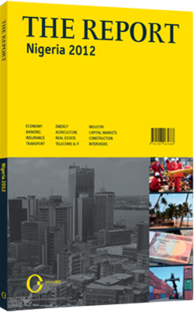Elizabeth Littlefield, President and CEO, Overseas Private Investment Corporation (OPIC), on investing in West Africa

Shifting global economic trends and the increasing flow of information about emerging markets highlights what those with experience in the region have long known − West Africa is ripe for growth and rich with opportunities for private investors. In the past decade Africa has experienced a remarkable turnaround. In 2000 the cover of The Economist declared Africa “The Hopeless Continent”, but 11 years later the story had become “Africa Rising”. Over the past decade, six of the world’s 10 fastest-growing economies were in Africa. The IMF projects that sub-Saharan Africa will grow 6% in 2012, with some countries − including Nigeria − predicted to join the world’s top economies in coming years. This means the average African country will outpace its counterpart in Asia. We can throw out the old assumption that it is all about commodities. The 2010 McKinsey report, “What’s Driving Africa’s Growth?”, points to broad-based growth, mainly fuelled by sectors like retail, transport, telecoms and manufacturing. Why is this happening? I see three reasons: The swelling ranks of the middle class; vast untapped possibilities; and efforts to create friendlier business environments. Hundreds of millions of Africans now have income to spend beyond basic needs. In the past decade the ranks of the middle class grew by 60% to 313m, according to the African Development Bank. The number of African households with discretionary income is expected to go up by another 50% over the next 10 years. We should not overlook the severe poverty, but a large segment of the population now has money to spend. It is a continent with vast untapped opportunities. It has nearly 60% of the world’s uncultivated arable land; 90% of new resource development in oil and gas in the next 20 years will be in the developing world, with much of it in Africa; and clean energy, though still in testing and relatively expensive, offers a chance to leapfrog the West’s carbon technology. African governments are making major efforts to improve the investment climate and energise markets. We have been seeing them privatise state enterprises, liberalise trade, lower corporate taxes, strengthen regulatory and legal systems, and invest in physical and social infrastructure. In 2010 around two-thirds of sub-Saharan African nations implemented reforms to improve their business climates. For investors, the most important sign of a positive business environment is improvement, even if incremental. The World Bank’s “Doing Business” indicators tell the story: in the past five years, half of the 12 countries awarded “most improved” status have been in Africa.
The best news yet is that investors and businesses are taking notice. In 2011 Africa tallied the highest proportion of global foreign direct investment projects it has ever received. There are now 20 stock markets in sub-Saharan Africa, compared to just five in 1989. Nigeria, in particular, has garnered attention as one of the most attractive African markets for new investment. This is paying off. Many investors are expecting double-digit returns in Africa, which ranked as the most profitable emerging market in the past 10 years.
OPIC, like its peer bilateral and multilateral development finance institutions, is able to provide the risk mitigation tools that make the difference between not investing at all and investing profitably. OPIC’s mission is to support sustainable development in emerging markets by mobilising private capital investment, especially US capital, for projects in priority sectors. We do this by providing the financing (from large structured finance to small business financing), political risk insurance and support for private equity investment funds that help US firms enter new markets. OPIC has a long history in Africa, with nearly $7bn invested in sub-Saharan Africa in our 40-year history. In fiscal year 2011, OPIC supported $1bn-plus in private sector investments in the region, representing over one-third of our total commitments for the year. OPIC also approved $367m for four private equity funds, which could mobilise an additional $1bn for investments in the health, agricultural and small business sectors. The opportunities exist. It is time for the private sector to lead the way.
You have reached the limit of premium articles you can view for free.
Choose from the options below to purchase print or digital editions of our Reports. You can also purchase a website subscription giving you unlimited access to all of our Reports online for 12 months.
If you have already purchased this Report or have a website subscription, please login to continue.

